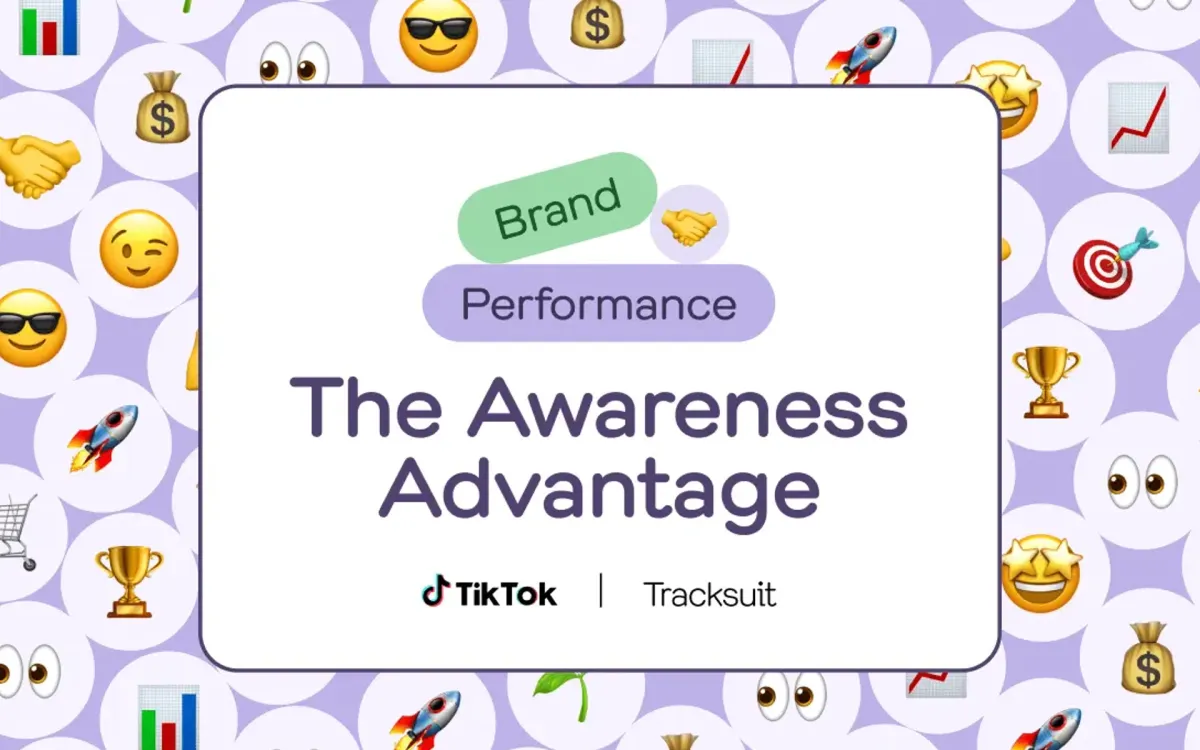
In a study released last month, Tracksuit and TikTok have uncovered compelling evidence that brand building and performance marketing work synergistically to drive business growth on the popular social media platform. The research, titled The Awareness Advantage, examines the relationship between brand awareness and advertising effectiveness, challenging long-held assumptions about the divide between brand and performance marketing strategies.
The study analyzed data from 147 brands in Australia and New Zealand, collected between January 2021 and April 2024. After applying rigorous filters to ensure data reliability, researchers focused on 11 brands, providing 60 data points for their model.
Key findings include:
- High awareness brands achieve 2.86 times the conversion rate of low awareness brands on TikTok.
- A brand known by four out of ten consumers is 43% more efficient in driving performance marketing outcomes compared to a brand known by three out of ten consumers.
- There is a strong correlation between brand awareness and conversion rate (CVR), while click-through rate (CTR) shows no significant correlation with brand awareness.
These results challenge the traditional notion that brand building and performance marketing are separate, competing strategies. Instead, they suggest a complementary relationship where brand awareness creates a foundation for more effective performance marketing efforts.
One intriguing finding from the study is the identification of a 37% brand awareness threshold. According to the research, the most significant improvements in conversion efficiency occur as brands build awareness up to this level. Beyond 37%, improvements continue but at a more gradual rate.
James Hurman, Co-Founder of Tracksuit, explains the significance of this finding: "What the data clearly shows is that brand awareness is a controlling factor for the performance of performance marketing. Both are equally important, but as marketers, if we want to maintain efficiency with our performance marketing as we grow, we need to grow our brand awareness as we grow our performance marketing spend."
Implications for marketers
The study's findings have several important implications for marketing strategies:
- Holistic approach: Marketers should assess the success of their efforts holistically, rather than treating brand and performance marketing as separate entities.
- Long-term focus: While performance marketing provides easily measurable short-term metrics, the study underscores the importance of long-term brand building for sustained growth.
- Resource allocation: Companies should regularly review and adjust their resource allocation between brand building and performance marketing based on their current brand awareness levels and business goals.
- Efficiency gains: Investing in brand awareness can lead to more efficient performance marketing, potentially reducing overall marketing costs while improving results.
Methodology and data analysis
The Awareness Advantage study combined data from Tracksuit's brand tracking and TikTok's advertising performance metrics. Researchers examined various advertising performance and brand health metrics, including:
- From TikTok: Ad recall, Click-through rate (CTR), and Conversion rate (CVR)
- From Tracksuit: Prompted awareness, Consideration, Preference, and Usage
To ensure reliability, the study applied several dataset filters, focusing on brands with:
- Valid performance data (e.g., positive cost per acquisition, impressions, and conversions)
- Consistent monthly advertising spend
- Data available for at least 10 consecutive months
- 10-60% brand awareness to avoid skewing results with very large or very small brands
The analysis used a logarithmic regression, converted to an ADBUG model to measure diminishing returns.
The Awareness Advantage study provides valuable insights for marketers looking to optimize their strategies on TikTok and potentially other platforms. By recognizing the synergistic relationship between brand building and performance marketing, companies can work towards more sustainable, profitable growth in an increasingly competitive digital landscape.
As the marketing world continues to evolve, this research suggests that the most successful brands will be those that effectively balance and integrate both brand and performance marketing strategies, rather than treating them as separate or competing entities.
Key Takeaways
- Brand and performance marketing are complementary forces, not rivals
- Higher brand awareness leads to better conversion rates in performance marketing
- A 37% brand awareness threshold marks a point of inflection for conversion efficiency
- Regular review and adjustment of resource allocation between brand and performance marketing is crucial
- Investing in brand awareness can lead to more efficient and cost-effective performance marketing

